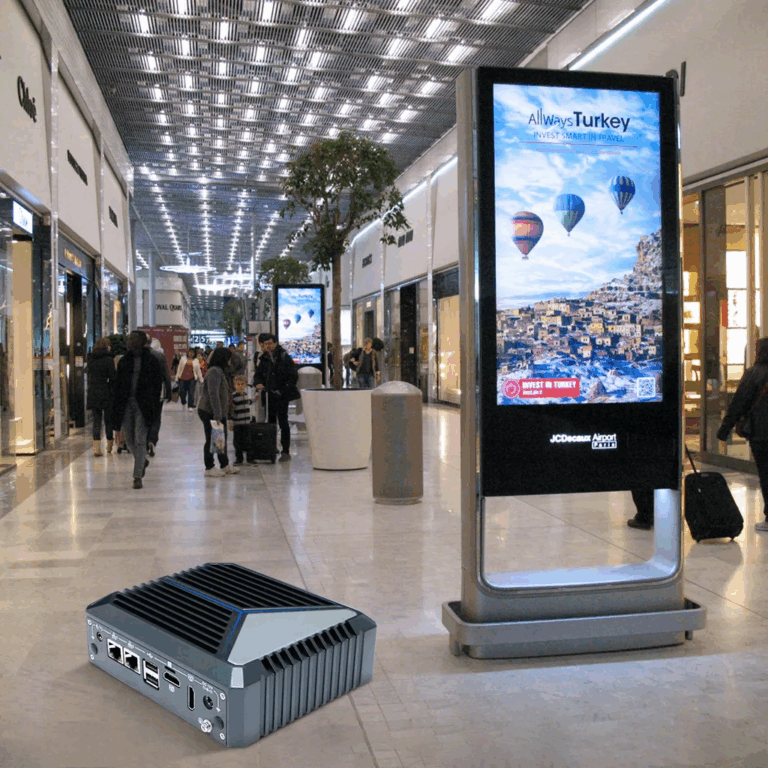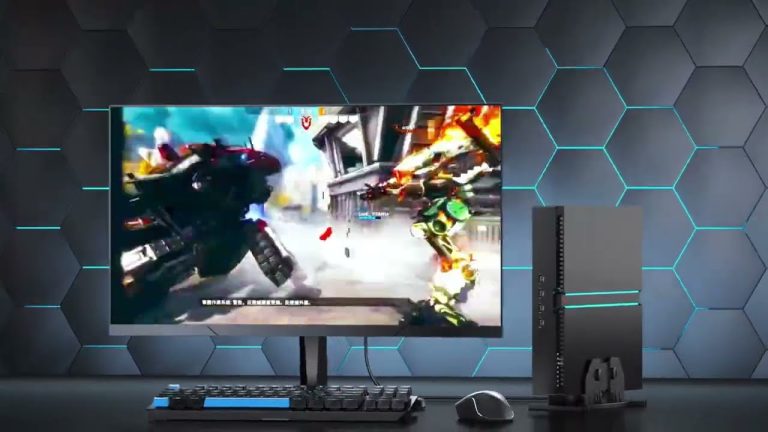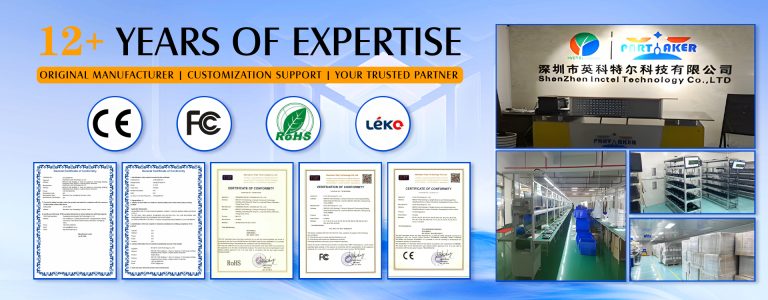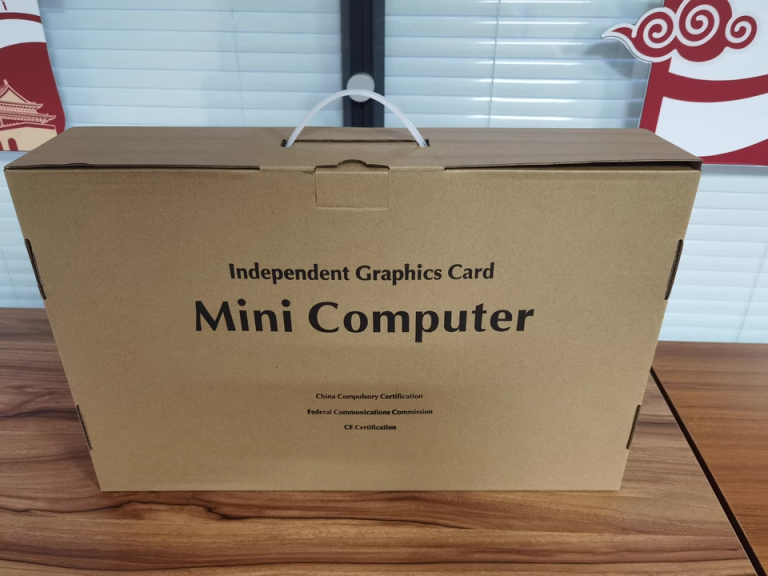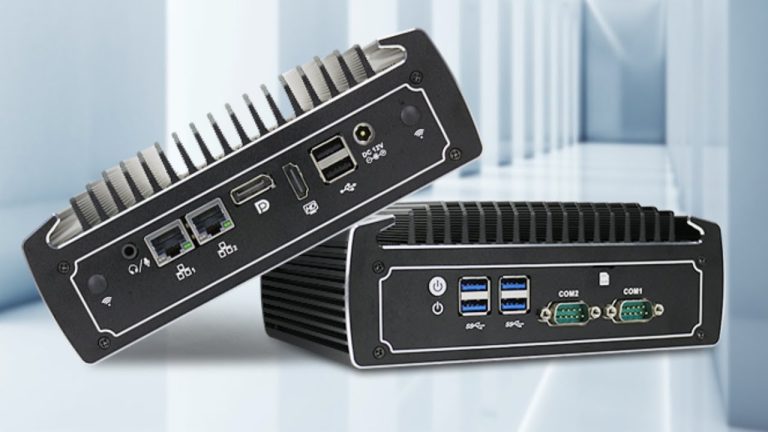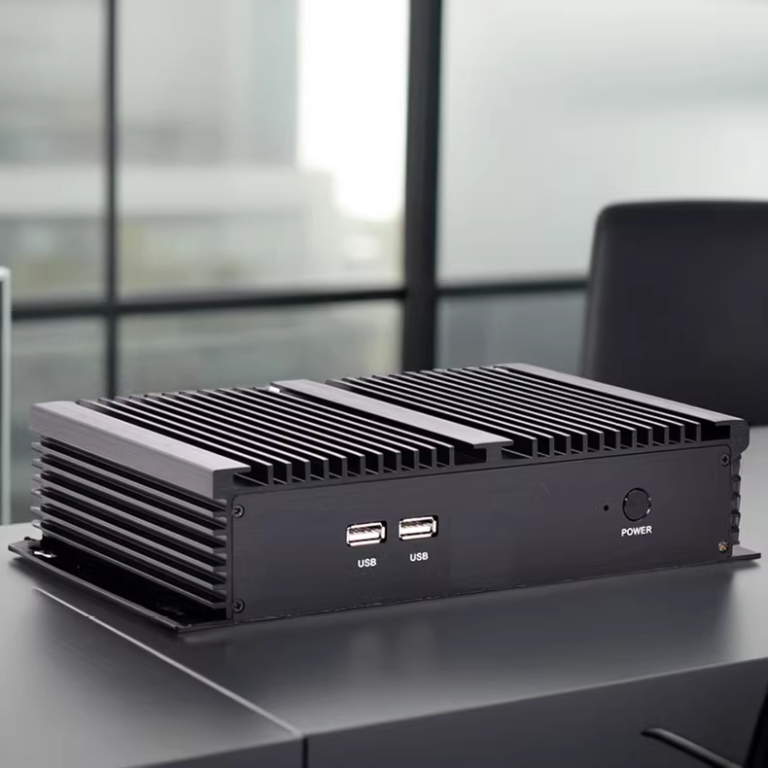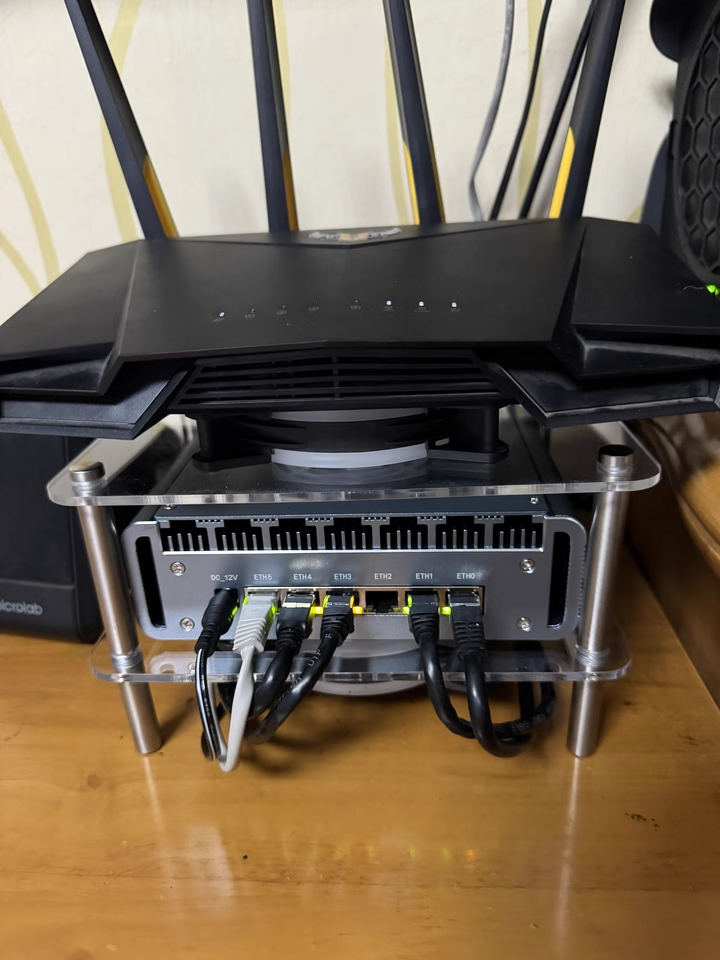In today’s fast-paced business world, small businesses often search for technology solutions that maximize efficiency without overwhelming their budgets. Mini PCs, compact versions of the traditional desktop computer, have surged in popularity, offering a compelling blend of performance and convenience.
Benefits of Small Businesses Using Mini PCs
In fact, Mini PCs have a lot to offer for small businesses:
Cost Effectiveness
Unlike full-sized desktops that can be expensive due to high-end components unnecessary for typical business tasks, mini PCs deliver essential functionalities without the added cost.This means that the small business can reallocate its financial resources to the more critical areas of growth, such as expanding its digital footprint, enhancing marketing strategies, or increasing research and development efforts. A small startup, for instance, would be able to utilize the money saved through mini PCs to execute a strong digital marketing campaign, potentially extending its reach in the market with its customers.
Space Saving
The compact size is a big bonus for small businesses operating in limited spaces, such as co-working environments or small offices. Mini PCs can be mounted behind monitors or tucked away discreetly, maximizing physical workspace and reducing clutter. The setup optimizes the use of physical space and supports a more organized and productive environment conducive to employee focus and collaboration. For businesses like boutique design studios or small financial consultancies, where space is a premium, mini PCs ensure that technology complements the aesthetic and functional needs of the workspace without dominating it.
Energy Efficiency
Mini PCs use far less power than traditional desktops, so they’re an eco-friendly option for any business looking to reduce their carbon footprint and utility costs. This lower energy consumption directly translates to savings on electricity bills, an important consideration for cost-sensitive ventures. Besides, the reduced heat output from mini PCs enhances comfort in a small office environment by avoiding excessive air-conditioning, which further increases energy costs. Eco-conscious companies can leverage this feature to support their sustainability goals, such as obtaining green business certifications, which can enhance their brand reputation and appeal to environmentally aware consumers.
Portability
For mobile businesses like event planners, consultants, or salespeople who travel a great deal, mini PCs hold an unrivaled advantage. One can easily relocate these small devices from place to place, whether it is for presentations, workshops, or temporary setups at a client’s site. This portability removes the reliance on less secure or less capable laptops to ensure that employees have access to full desktop capabilities wherever they go. This can be particularly beneficial during trade shows or client demonstrations where powerful computing capabilities might be needed on the fly to showcase sophisticated software or high-quality multimedia presentations.
Silent Operation
The quiet operation of mini PCs is subtle yet significant, particularly in environments like open-plan offices, libraries, or spaces hosting frequent client meetings where a high noise level could be disruptive. Quiet mini PCs can ensure a much better atmosphere in the workplace, which helps employees concentrate and communicate effectively. The near-silent operation of mini PCs gives video editing and sound engineering professionals whose work relies on auditory clarity the chance to carry out technical work without additional noise influences, hence achieving higher quality outputs and more satisfied clients.
What to Look for in a Small Business Mini PC
| Component | Recommendation |
| Processor | Intel Core i5/i7 or AMD Ryzen 5/7 |
| Memory and Storage | At least 8GB of RAM; 256GB SSD or larger |
| Ports and Connectivity | Multiple USB ports, HDMI/DisplayPort, robust Wi-Fi and Bluetooth |
| Operating System | Compatible with business software; options include Windows 10, Linux, macOS |
| Upgradability | Models that allow RAM and storage upgrades |
Selecting the appropriate mini PC requires an understanding of your business’s specific operational demands and the technical specifications of the hardware:
1.Processor
The processor is essentially the brain of the mini PC, dictating overall performance and efficiency. For small businesses, it’s important to choose a processor that strikes an optimal balance between power and energy consumption. Look for current generation processors like Intel Core i5 or i7, or AMD Ryzen 5 or 7, which are known for their robust performance and moderate power usage. This choice ensures that the mini PC can handle a variety of tasks from basic document editing to more demanding applications like graphic design software, without excessive energy draw.
2.Memory and Storage
A minimum of 8GB of RAM is recommended to ensure smooth multitasking and efficient operation. For businesses dealing with data-intensive applications, 16GB may be a more suitable starting point. Regarding storage, solid-state drives (SSDs) are preferable due to their faster data access speeds and reliability. SSDs help reduce the boot time and load applications quicker, which can significantly enhance productivity. A 256GB SSD is a good baseline, while 512GB or more is advisable if your business operations involve large files or complex software that require more space and quick accessibility.
3.Ports and Connectivity
Effective connectivity options are vital for ensuring that all peripherals and external devices can be connected without limitations. Ensure the mini PC has a variety of ports such as multiple USB ports for basic inputs and external drives, HDMI or DisplayPort for connecting monitors, and perhaps even USB-C for newer peripherals that require faster data transfer speeds. Additionally, robust Wi-Fi and Bluetooth capabilities are non-negotiable for maintaining strong wireless connections with internet sources and other Bluetooth-enabled devices, which is crucial for maintaining productivity in flexible workspace arrangements.
4.Operating System
The choice of operating system should align with the software commonly used in your business operations. While most mini PCs come equipped with Windows 10, which is compatible with a wide range of business applications, alternatives like Linux might be considered for more tech-savvy environments or specific applications that benefit from open-source flexibility. For design-focused businesses using specialized software, a macOS might be preferable if compatible hardware is available. Ensuring the operating system supports all your business applications is crucial to avoid compatibility issues that could hinder workflow.
5.Upgradability
Choosing a model that allows for easy upgrades to RAM and storage can extend the device’s lifespan and adapt as your business needs grow. This feature ensures that your investment remains robust over time, supporting more intensive applications and an increasing load of business data without the need for immediate replacement.
Final Words
Mini PCs do much good to small businesses, from lower cost and compact size to quiet operation and energy efficiency. When selecting a mini PC, do consider its core components, such as the processor, memory, and connectivity options, to ensure it meets your business’s demands. With the right mini PC, small businesses can enhance their operations, ensuring they remain agile and competitive in the market.




